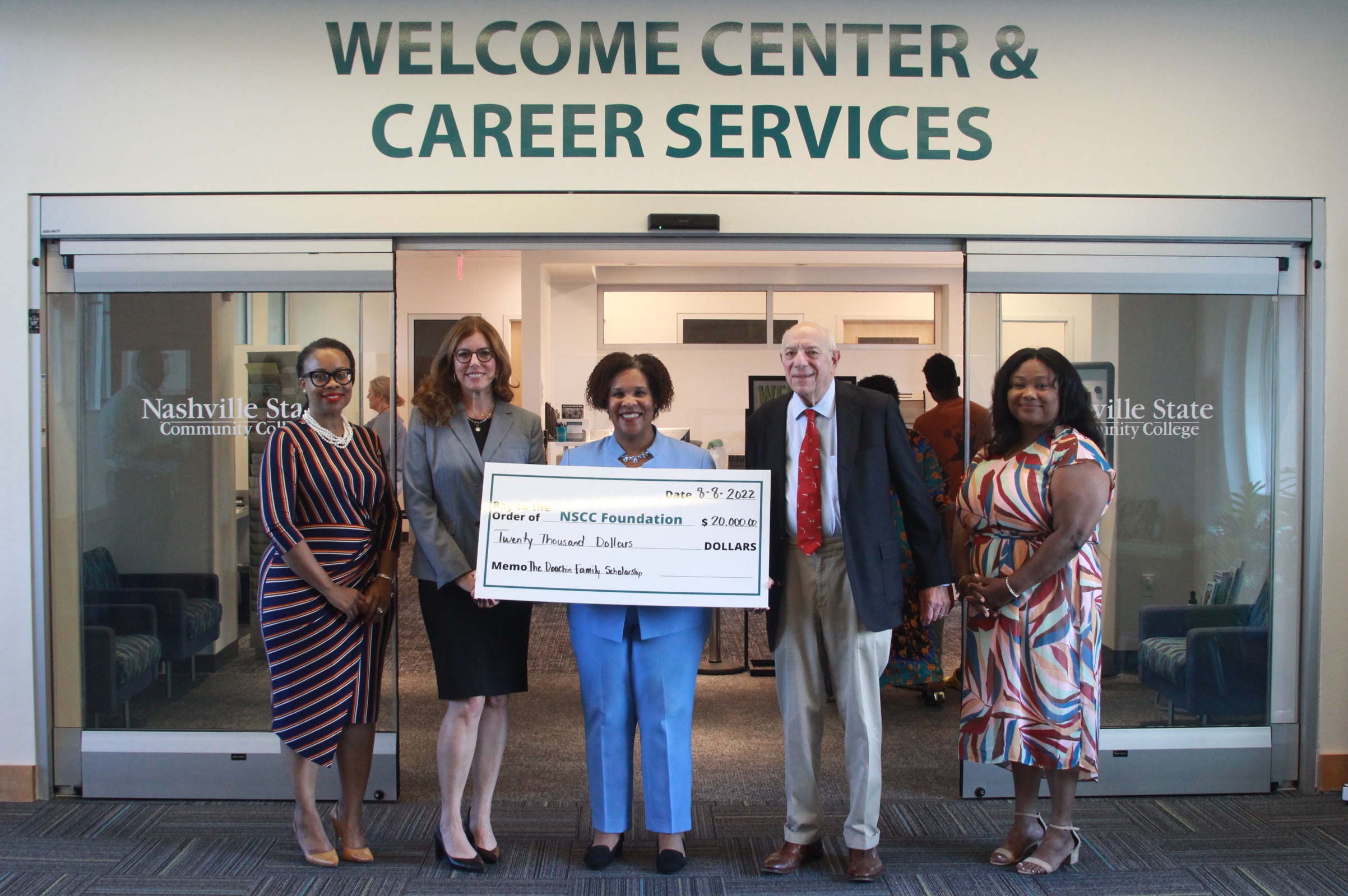Formerly Incarcerated Individuals Receive Assistance to Persist While in College
Students pursuing a degree or technical certificate at Nashville State Community College who were formerly incarcerated have access to bridge scholarships and microgrants that will pay costs directly associated with attending college such as textbooks, supplies, and potentially tuition and tuition balances.
The Doochin Family Trust has partnered with the College and Nashville State Community College Foundation to create an annual $20,000 scholarship pool for returning citizens.
This scholarship provided through the Foundation supports full or part-time students. Depending on funds availability and the specific needs for each applicant, recipients can be awarded up to $2,686.00 each semester. Funding will be provided during a student’s bridge semester (the first semester in which they are released from prison) as they set up their financial aid.
This scholarship provided through the Foundation supports full or part-time students. Depending on funds availability and the specific needs for each applicant, recipients can be awarded up to $2,686.00 each semester. Funding will be provided during a student’s bridge semester (the first semester in which they are released from prison) as they set up their financial aid.
Dr. Julie Doochin has been a Tennessee leader in providing post-secondary educational opportunities for incarcerated individuals, having founded the Tennessee Higher Education Initiative. THEI was born out of a program Doochin launched at Nashville State more than 10 years ago. The Nashville-based nonprofit works with the Tennessee Department of Correction and several colleges to offer degree-bearing higher education.
After leaving THEI, Doochin served as vice president of programs at Dismas House, a transitional living program for men returning to the community from incarceration. Now, as Board president and director of the Doochin Family Trust, she continues that work by staying involved in making sure there is community and financial support available to all returning citizens, in part through her family’s trust.
“Higher education is a gateway to stop the revolving door of recidivism, and as a result making our communities safer and saving millions of taxpayer dollars,” Doochin said. “Nashville State plays a critical role in serving all populations with their quality instruction and welcoming and inclusive attitude.”'
Nashville State currently works with THEI to provide academic programs at the Turney Center Industrial Complex, Debra K. Johnson Rehabilitation Center, and Riverbend Maximum Security Institution. Most recently on August 29, nine incarcerated men at the Turney Center graduated with their Associate of Science in Business Administration. Since the inception of the collaboration, which includes work at the now-closed Charles Bass Correctional Complex, 81 students graduated while incarcerated or shortly after release.
“This donation not only supports formerly incarcerated persons who are now students pursuing their educational goals, it highlights the depth of resources the Foundation seeks to secure for students,” said Cecily Stone, Nashville State Community College Foundation’s executive director. “We thank the Doochin Family for their foresight and commitment to assist this important population.”
In addition to the College’s associate degree level program, Nashville State’s Workforce Development has partnered with the sheriffs of Houston, Stewart, and Montgomery counties to provide Industrial Readiness Training through the GIVE Act grant to currently incarcerated persons.
Lauren Solina, coordinator of Special Programs for Correctional Education, Tennessee Board of Regents, who helped facilitate the Doochin Family Trust partnership with Nashville State said, “This new opportunity for students highlights Julie’s commitments to removing barriers for justice involved-individuals and to assisting formerly incarcerated students in completing their education. The transformative nature of education is shown to reduce recidivism by as much as 36%, and we hope that this will be one more tool in the toolbox of the Correctional Education Initiative.”
Interested and eligible Nashville State students can learn more about this and other resources by visiting: www.nsccf.org.


